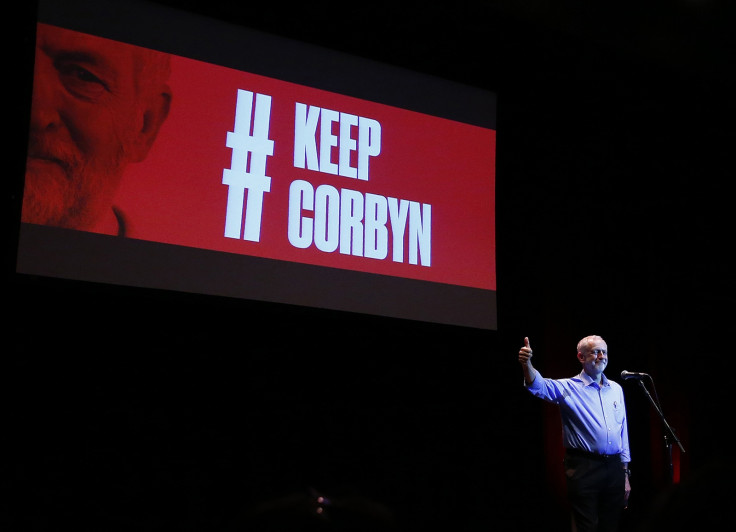I used to be on the far-left, and have seen how toxic it could be for Labour
It isn't new members that are the most problematic, but those who haven't seen how it works from the inside.

For someone who has been on the far-left in the UK, particularly within one of the tiny revolutionary or radical socialist parties, the current media coverage of Momentum and, more broadly, the new Corbynite Labour membership, seems a little baffling. While my perception had been that we were something of a fringe concern, it transpires that there was a secret network of tens of thousands of dedicated extremist activists waiting for deployment at any minute. In light of this, I can only say that campus meetings were even more poorly attended than I had originally thought.
In a campaign video which has now been removed from Jeremy Corbyn's Facebook page after claims it made light of accusations of anti-Semitism, Corbyn supporters were asked to respond to the top five questions they are most asked, including a question as to whether or not they are all Trotskyists. The answer, they claimed, is that they don't even know who Trotsky was. And, herein lies the issue, the vast majority are not Trotskyists, they are not Marxist-Leninists, not Communists, and they have no ties to the far-left.
Whilst they may consider themselves Socialists in a woolly "redistribution of wealth is a good thing, and we should invest in public services" sense, these are not people who have spent the last twenty years arguing over whether or not Rosa Luxemburg was too liberal, or to what degree the end justifies the means when it comes to armed struggle.
A recent episode of Dispatches painted a picture of targeted and high-level entryism from the Alliance for Workers' Liberty (AWL). Anyone who has interacted with the AWL to any degree knows that they are constantly under attack for their moderate views from other leftist groups. In particular, views regarding Israel's right to exist and a determined stance against Russian military aggression, the Assad regime, knee-jerk anti-Americanism, and authoritarian so-called "socialist" states.
What the AWL does have is an understanding and knowledge of the history of the far-left, both theoretically, and in practice in the UK. What they don't have is a mass membership, nor the attitudes that those in opposition to Corbyn's Labour fear the most and that other leftist groups espouse: anti-Semitism dressed as anti-Zionism; authoritarianism; or questionable allegiances to anti-Western foreign powers.
In fact, I think it could be safely argued that it isn't new members with experience of the far-left that are the most problematic, but rather those who haven't seen how it works from the inside. While the AWL is relatively benign, many of us have been badly stung through membership of another, at the time much larger, organisation – the Socialist Workers Party (SWP). It was in the SWP that many young socialists learned of the real danger of democratic centralism.
Democratic centralism is where decisions made by the Party at conference are binding, and those who disagree must either step in line or be thrown out, which leads to excessive power being held by a tiny elite and a seriously yoked membership. In the SWP's case, this allegedly resulted in covert factionalism, expulsions, protection of senior party members from censure and even allegations of sexual abuse and rape.
In the desire to see their man win, keep control of the Party, and affect the social and political change they want to see, they are proposing fundamental changes to the structure of the Labour Party
There are two suggestions being floated that give cause for concern that Labour may be headed in a similar direction, politically at least: first, the idea that MPs are delegates of their local party, rather than representatives of all their constituents and, secondly, mandatory reselections, where MPs can be punished and deselected for not adhering to party policy.
Whether there are far-left individuals positioning themselves to take control of the party or not, in these circumstances, an elite tends to emerge and hold power over the majority, and nonconformists are punished and expelled. They needn't be entryists; they can be homegrown.
When the SWP finally imploded, many members were left heartbroken and angry about the treatment of their comrades and the abuse that was allowed to continue under the guise of democratic centralism. These were well-meaning people who wanted to make the world a fairer and more equal place, they weren't authoritarian monsters, and neither are new members of the Labour Party and Momentum.
However, in the desire to see their man win, keep control of the Party, and affect the social and political change they want to see, they are proposing fundamental changes to the structure of the Labour Party. These changes will disenfranchise them in the long term and potentially lead to the same terrible abuses of power those of us who've been there before have already seen. If this happens, it really will be the end of the Labour Party.
Matilda Murday is a democratic reform advocate and practitioner, having worked with local, national & EU level government bodies and organisations to build bridges between people and their governments.
© Copyright IBTimes 2025. All rights reserved.






















